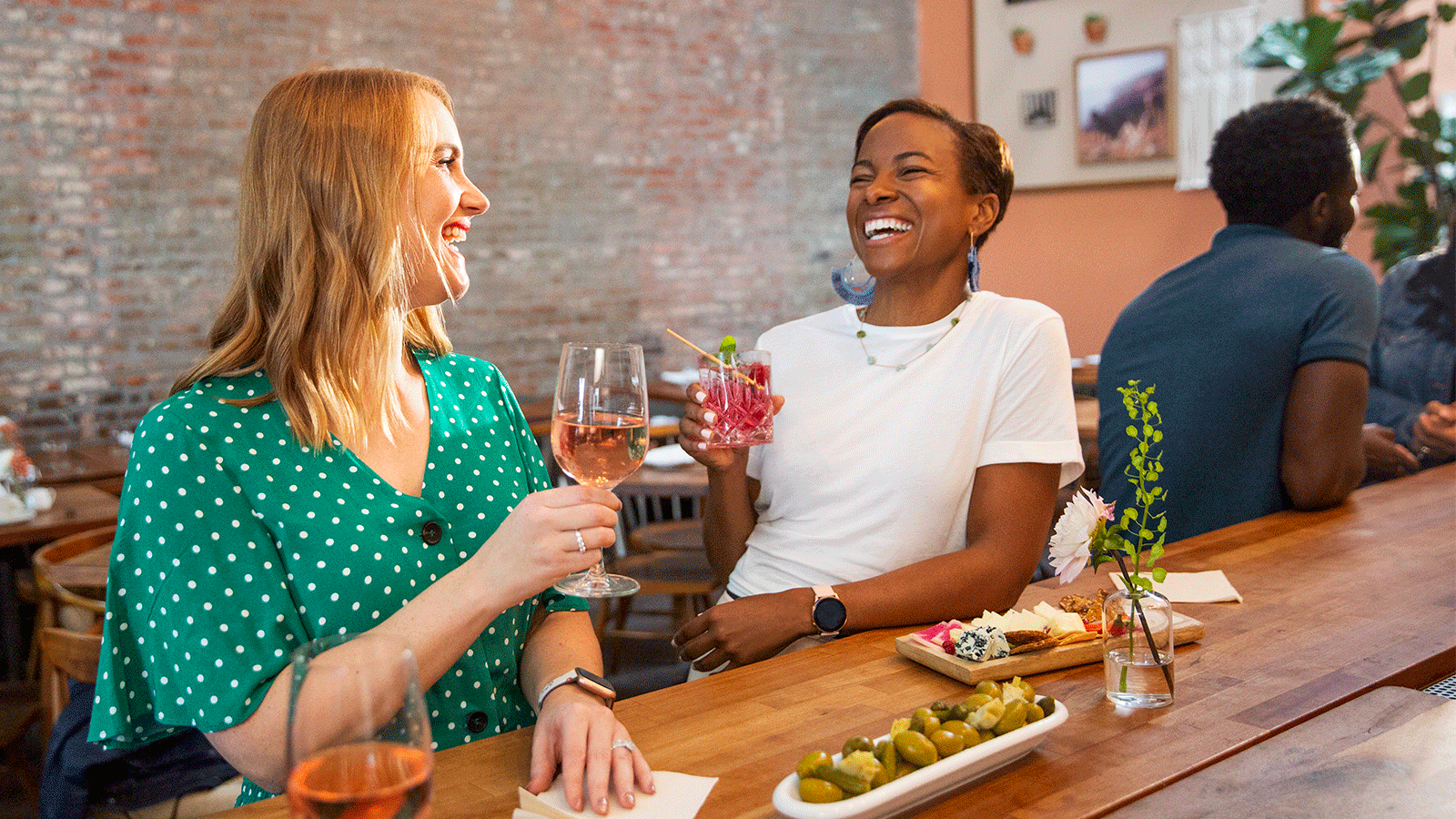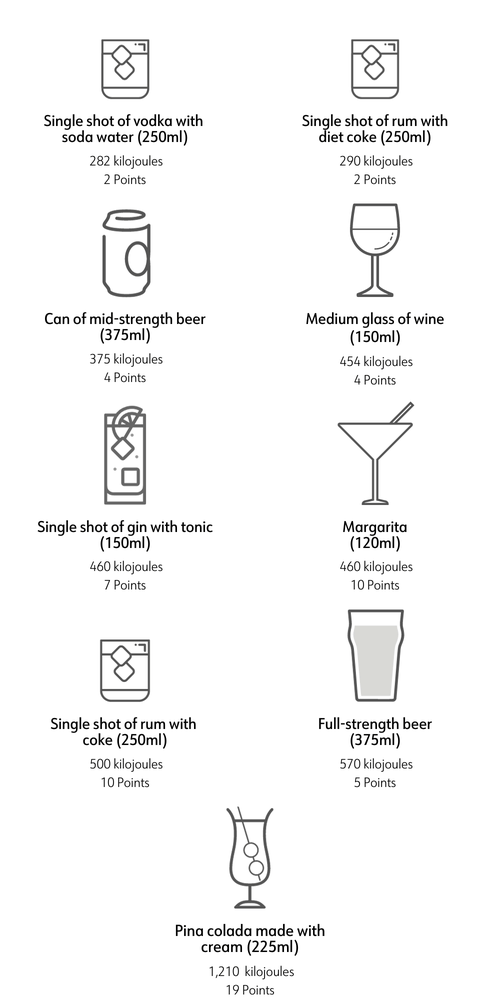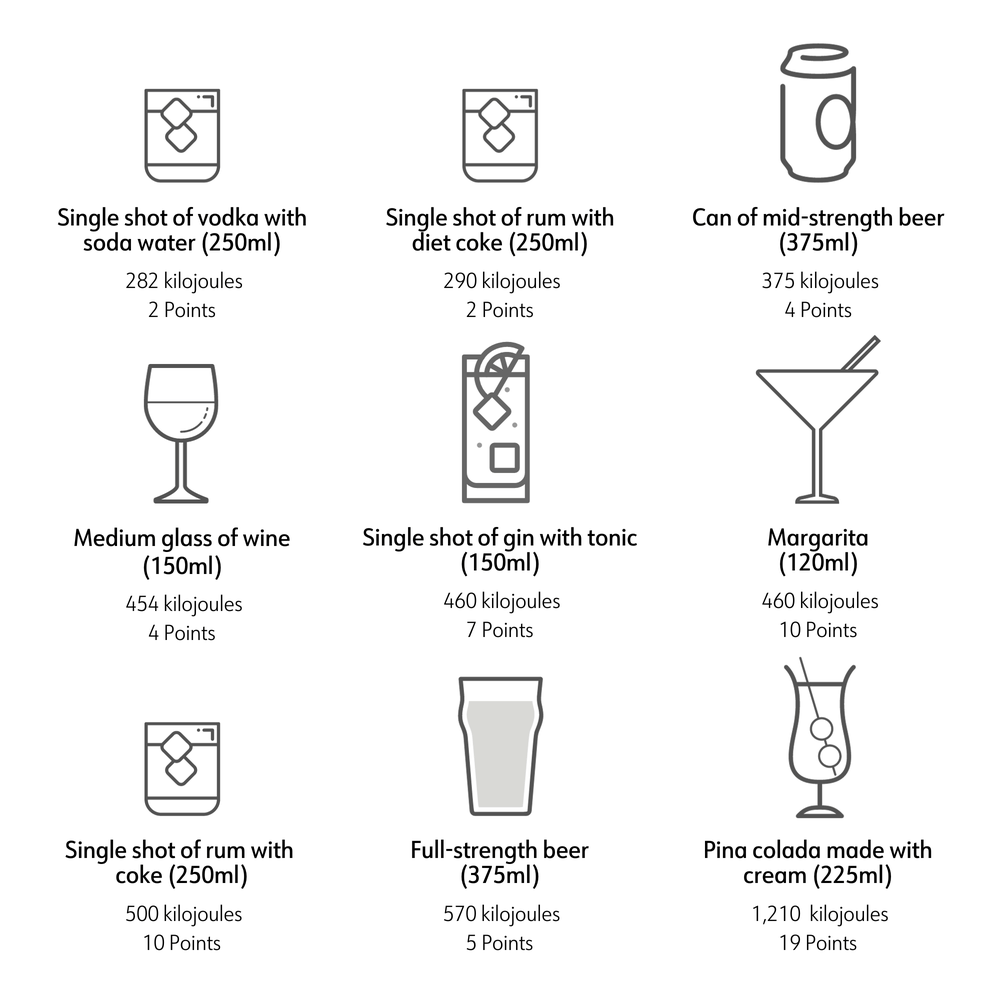Can you drink alcohol and still lose weight?


In Australia, we’re drinking less alcohol than we used to and as far as trends go, it makes sense. It’s now clear that, when it comes to alcohol and health, the risks far outweigh any potential benefit that earlier studies may have suggested, with recent research linking alcohol to an increased risk of everything from heart disease to at least seven different types of cancer.
It seems like the more we learn about the health impacts of alcohol, the less we’re drinking.
But, if you do enjoy the occasional drink and you’re trying to lose weight, you might be wondering if you can do both at the same time – or whether drinking alcohol might actually cause you to gain weight.
The answer, according to research is, it’s complicated. While some studies show that drinking alcohol is linked to weight gain, some studies show the opposite, and others suggest there’s absolutely no relationship between the two things at all.
Regardless, nothing is off limits at WeightWatchers, which means if you like to enjoy a drink, you absolutely still can. But, when you’re trying to lose weight, it does pay to bear the following things in mind.
Alcohol can be high in kilojoules
Alcohol is a source of energy, with every gram of it containing 29 kilojoules (7 calories). This means a standard drink contains at least 290 kilojoules just from the alcohol content alone. Alcoholic drinks that are made with sweet, sugary mixers or things like cream contain even more kilojoules – and sometimes significantly more.
It can interfere with your body’s fat-burning ability
Your body doesn’t need to store alcohol – in fact, it can’t. So, whenever you have a drink, your liver needs to break it down immediately so that it can be used as energy, and it’s this energy that your body then uses first. At the same time, any extra energy from food that the body can’t use gets stored as fat.
You might feel hungrier after a couple of drinks
It’s a well-known fact that alcohol stimulates appetite. Researchers believe that, thanks to the way drinking alcohol causes blood glucose levels to rise and then fall, it stimulates the brain to feel hungry, even if you’re not physically, genuinely hungry.
Alcohol has also been linked to wanting more salty and greasy foods
In other words, having a few drinks is not only likely to make you feel hungry, it can directly influence the type of foods you’re hungry for, too. And let’s just say it won’t make you feel like reaching for the carrot sticks, with research showing it’s salty, greasy foods that alcohol can make seem more appealing and tasty than usual.
3 tips for drinking alcohol while trying to lose weight
Now that you understand more about how alcohol can affect your weight, here are a few tips to consider using if you do want to enjoy a drink every now and then on your weight-loss journey.
1/ Drink in moderation.
Research shows that many of alcohol’s potential impacts on weight, including increasing hunger as well as that appetite for greasy food, tend to kick in after a few drinks, rather than after just one or two. So whenever you’re enjoying alcohol, moderation is key.
While there’s no level of drinking that’s considered to be ‘safe’ or ‘healthy’, Australia’s National Health and Medical Research Council has developed some guidelines around alcohol consumption that are designed to help protect you from experiencing alcohol-related harm.
According to these guidelines, if you do drink alcohol, don’t drink more than 10 standard drinks a week and stick to no more than four standard drinks on any one day. A standard drink is one 30ml nip of spirits, while a 150ml glass of wine or a 375ml can of full-strength beer is about 1.5 standard drinks.
2/ Choose the best alcohol drink to lose weight.
To be clear, no one’s suggesting there’s a particular type of alcoholic drink that’ll actually help your weight loss, but if you want to enjoy a drink, some drinks are less likely to impact your weight-loss journey than others.
It all comes down to how much energy, or kilojoules, a drink contains – and the fewer the better. Check out the following list, which will help you understand how many kilojoules different types of drinks deliver.
- A single shot of vodka with soda water = 282 kilojoules
- A single shot of rum with diet coke = 290 kilojoules
- A can of mid-strength beer = 375 kilojoules
- A medium glass of wine= 454 kilojoules
- A single shot of gin with tonic = 460 kilojoules
- A margarita = 460 kilojoules
- A single shot of rum with coke = 500 kilojoules
- A can of full-strength beer = 570 kilojoules
- A pina colada made with cream = 1210 kilojoules


As a general rule, remember that lower-strength alcoholic drinks will contain fewer kilojoules, as will those mixed with soda water rather than sugar-sweetened mixers like coke, lemonade or tonic, or cream and sugar syrup.
You could also consider opting for a non-alcoholic wine, beer or spirit the next time you feel like having a drink. Just keep in mind that even though these are all free from alcohol, the kilojoule content can vary quite significantly between different drinks and brands.
As a WeightWatchers member, comparing different drinks – whether they contain alcohol or not – is quick and simple using the app.
3/ Plan ahead.
Importantly, take care to avoid drinking alcohol on an empty stomach. Having food in your stomach will slow down the rate at which alcohol is absorbed into your bloodstream. And with a clearer head, you’ll likely find it easier to make the choice to stick to just one or two drinks.
It’s also a good idea to make your first drink a non-alcoholic one. If you’re thirsty, this means you’ll have quenched that feeling before you have an alcoholic drink, so you can then enjoy it slowly and more mindfully.
